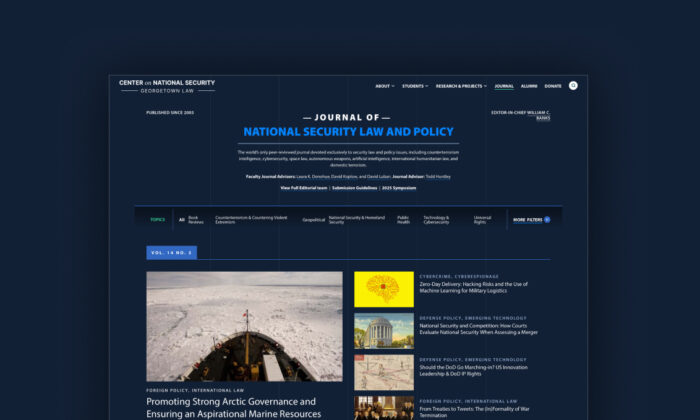On December 31, 2017, section 702 of the 2008 Foreign Intelligence Surveillance Amendments Act (FAA) will expire. Section 702 governs the domestic interception of foreigners’ communications, when the targets are believed to be outside the United States. Although externally directed, this statute is being used by agencies to monitor, collect, and search U.S. citizens’ communications for foreign intelligence and criminal activity. Congress has an opportunity to amend section 702 to safeguard U.S. national security, protect citizens, and comply with the Constitution.
Controversy marks the renewal debate. The Director of National Intelligence (DNI) states that the interception powers are vital to the intelligence community’s ability to protect the United States from foreign threats. About one quarter of the counterterrorism reports from the National Security Agency (NSA) include information derived from section 702 intercepts. Renewal is the intelligence community’s top legislative priority for 2017.
In contrast, civil liberties organizations consider the current use of section 702 to be unconstitutional. These groups, along with legal analysts and members of Congress, criticize the sheer number of Americans whose communications the NSA collects—a figure that privacy advocates estimate to be in the tens of millions. Revelations about the interception of Donald J. Trump’s campaign workers’ communications with Russia have generated further concern about the potential use of surveillance for political gain.
Section 702 is an important tool in the intelligence community’s arsenal. But the statute should be amended to bring it within constitutional bounds. Section 702 violates citizens’ rights, creates a situation ripe for abuse, and undermines the balance of power between the branches of government. Congress should use the renewal of section 702 to restrict the NSA’s ability to obtain certain kinds of information and to retain citizens’ communications. Congress should also reinstate the “primary purpose” test (which mandates that an intercept be for foreign intelligence purposes), prevent section 702 intercepts from being used to find evidence of ordinary criminal activity, and prohibit collection of communications about (not just to or from) targets.



